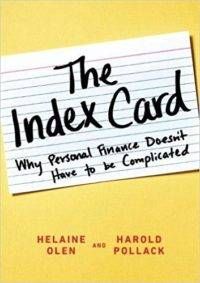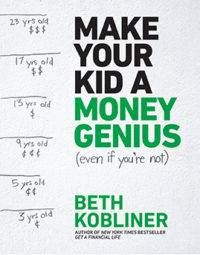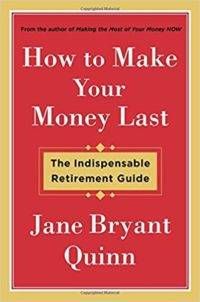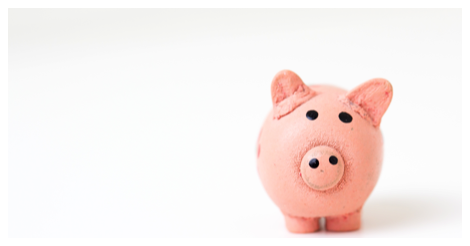
12 Books to Fix Your Personal Finances
Managing your finances isn’t fun—well, maybe it is for people who love spreadsheets and received calculators for Christmas, but for most of us it can be stressful, painful, and even shameful. But, like death and taxes, money is a fact of life, so instead of fearing and avoiding it, we should embrace it and make it work for us. You can do that by taking control of your personal finances. And I’ve complied a list of the best personal finance books to help. Below, I’ve broken them down by audience—starting and ending with some suggestions that I think anyone and everyone will find helpful.
Note: While I carefully researched each title, I have not read through or followed the advice of all of these books. Finances are serious business, and none of these reviews is a personal endorsement of the book’s methodology. What works for one person will not work for another. So, if you lose all your money following a certain book’s advice (which you shouldn’t because none of them are those scammy get-rich-quick books) please don’t get mad at me…
Personal Finance for Everyone
The Index Card by Helaine Olen and Harold Pollack
If you’re feeling overwhelmed by debt and don’t know where to begin, take a deep breath and pick up The Index Card, a personal finance book that is all about keeping it simple. It focuses on ten simple pieces of financial advice that can make a world of difference, and they all fit on a single index card (hence the title). The book is less than 250 pages, so it can be read cover-to-cover fairly easily, but you can also dip in and out; each chapter breaks down a rule with clear steps and thoughtful advice. Author Helaine Olen also wrote Pound Foolish, an extremely enlightening book about the personal finance industry—aka the jerks trying to make money off your lack of it. Her advice is sound, trustworthy, and all about helping your bottom line.
All Your Worth by Elizabeth Warren & Amelia Warren Tyagi
All Your Worth is another basic, but thorough personal finance book—and it’s co-authored by Massachusetts’s first female senator, a woman whose advice I’d take in all aspects of life. Broken down into six steps, All Your Worth is meant to be a lifetime strategy, not a quick fix. My favorite nugget of advice is to break down your spending into three categories: Must-Haves, Wants, and Savings, and to allot 50%, 30%, and 20% of your earnings respectively to each area. Keep these categories in balance and you won’t feel overwhelmed or controlled by your finances.
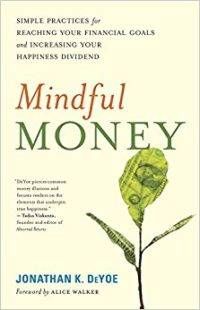
Mindfulness seems to be having a moment, and I get it. We live in a crazy nonstop info-saturated world. Sometimes, you forget to breathe. This book applies Buddhist principles and mindfulness practices to managing your personal finances. DeYoe reminds you that money is a tool to achieve happiness, not happiness itself. The book will walk you through four simple practices: casting aside illusions of what money can and can’t do; realizing what makes you happy; making a simple money plan that aligns with your version of happiness; and sticking to said plan “calmly and nonreactively.” Plus, the book’s epigraph is a quote from Albus Dumbledore. Do I judge my books on their epigraphs? No, but a nod to one of the greatest, wisest wizards hurt.
Your Money or Your Life by Vicki Robin and Joe Dominguez
This book covers a nine-step program that focuses on making your spending reflect your life’s values and goals. It begins with transforming your relationship with money by examining your assumptions and habits, and ditching the ones that aren’t working for you. This is personal finance through a self-help lens because, let’s be honest, our finances are often intrinsic to our sense of self-worth. If you’re looking to do a major overhaul of your spending and habits, this may be one of the best personal finance books for you.
finance basics For Kids & Parents
How to Turn $100 Into $1,000,000 by James McKenna and Jeannine Glista
A wonderful primer on money and finances for late elementary and middle school kids. This book covers how to set financial goals, make money, save money, and invest money. With fun, tri-color illustrations, clear language, and a glossary for more difficult terms it’s the perfect jumping off point for kids’ financial education. It even includes a business plan and budget tracker template.
Make Your Kid a Money Genius by Beth Kobliner
According to the back of this book, by age seven kids have already formed their basic money habits, habits that will potentially stay with them throughout adulthood. Scary, huh? So, you probably need to start talking about money with your kids sooner than you think. This book covers children from ages three to twenty-three. It deals with everything from basics like how to understand a paycheck to more complicated matters like investing. Read this book and teach your kids how to earn, save, invest, and give back. It even has helpful financial advice for parents.
Comprehensive Financial Advice for MILLENNIALS
Get a Financial Life: Personal Finance in Your Twenties and Thirties by Beth Kobliner
If you’re a 20-something whose parents didn’t read Kobliner’s How to Make Your Kid a Money Genius, there’s still hope for you. Her book on personal finance in your 20s and 30s is a personal favorite. It’s another one you can easily dip into or read cover-to-cover. With chapters on banking, investing, savings, student loans, insurance, and taxes, it approaches the basic concerns of most 20/30-somethings in a clear, calm fashion. If you’ve just graduated (high school, college, or grad school) and want to get on top of your finances before they get away from you, this is one of the best personal finance books out there.
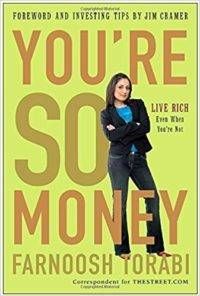
This book is a bit different from my previous suggestions: it is tailored to young women who want to enjoy the finer things in life without going broke. But don’t we all wish we could buy that brand new iPhone/purse/video game without breaking the bank? Farnoosh is a financial reporter whose writing is funny, flippant, and full of practical advice. You’re So Money is about living beyond your means but spending within them—and not in a sneaky way, but by spending money on the things you truly care about and cutting corners on the things you don’t. And, if you’re more of an aural learner, Farnoosh also hosts a popular finance podcast called So Money.
I Will Teach You To Be Rich by Ramit Sethi
How’s that for a title? If you’re raising your eyebrows and about to remind me I promised no scammy books, settle down. How do you define “rich”? After you’ve gotten past the obvious stacks of money answer, I’d wager your definition is different from your neighbor’s or your best friend’s. Sethi has developed a 6-week program that begins with understanding the barriers that keep us from properly managing our money and ends with breaking down those barriers by asking what you want from life and how money can help you achieve that. His book is especially focused on credit cards, setting up the right bank accounts, and investing. It’s not a total life plan, but it is full of useful tips and knowledge that can help you earn more money and properly manage what you earn.
And, while we’re recommending books, this Book Riot post has 7 non-financial books for people figuring out their twenties.
Joint Finances
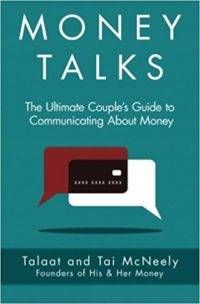
We’ve already talked about how personal finance is hard, but managing money as a couple can feel even harder. This book encourages honest conversation between couples about how each of you spend and what your finances look like. It’s perfect for those planning to combine finances or for those having issues with previously combined finances. Husband/wife team Talaat and Tai McNeely have a lot of experience dealing with common money; their book is straightforward and full of tips for effective communication when discussing difficult topics (which, when it comes to money, can seem like all of them) like budgeting, debt, and financial goals.
Financial Planning & Retirement
Personal Finance After 50 for Dummies by Eric Tyson and Bob Carlson
I love the Dummies series; they’re some of the most comprehensive and straightforward books, and this title on personal finance and retirement is no exception. It is full of step-by-step plans that guide you through developing a retirement plan to managing your budget and investing post-retirement. It covers often confusing concepts like social security, medicaid, wills, and other legal documents. There’s also a section for children dealing with aging parents. If you feel completely lost when thinking about retirement, this is a great place to start.
How to Make Your Money Last by Jane Bryant Quinn
An in-depth, accessible book that will teach you how to make your money last and even grow after retirement. Quinn covers topics like making more from social security, getting the most out of your health insurance, and boosting your savings plan. If you’re wondering how much you can afford to spend per year, or have questions about life insurance, pensions, and annuities, How to Make Your Money Last is an invaluable resource.
For Extra Credit
Demystifying money and economics can help your personal finances feel conquerable. If you’re looking for books that cover money as a general topic, I highly recommend Naked Economics and Naked Money by Charles Wheelan. His writing is accessible and even made me laugh out loud multiple times. It’s one of those books that is fairly easy to read, but leaves you feeling way smarter. And, if you’re ready to level up when it comes to investing, The Intelligent Investor by Benjamin Graham is a more technical look on value investing, and a classic of its genre.
I hope in at least one of these books you’ll find a method that works for you. And if you have your own best personal finance books and money management titles, I’d love to hear them. I find that there’s no one right way to deal with your debt and manage your money, but every book has at least a nugget of knowledge to offer.


